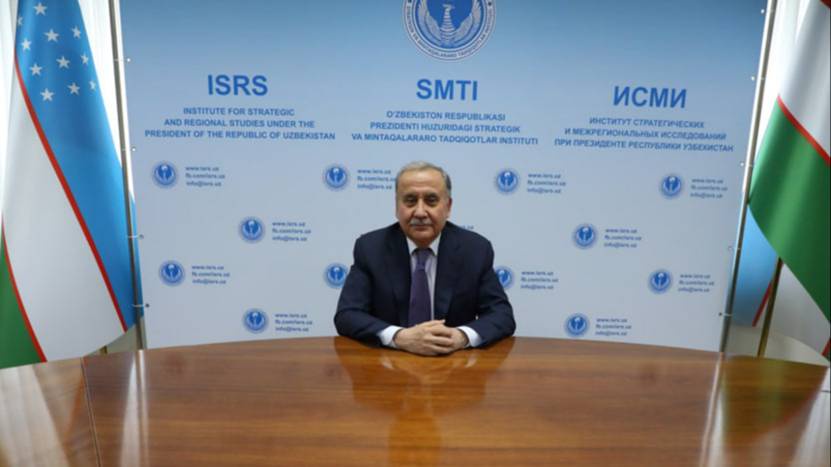Qatar – Uzbekistan’s promising partner in the Arab-Muslim world

The visit of the Amir of the State of Qatar, Sheikh Tamim bin Hamad Al Thani, to Uzbekistan attracted significant attention both in Uzbekistan and abroad, taking into account the results, agreements reached and agreements signed following its results in political, trade, economic, cultural, humanitarian, investment and other fields.
In total, 15 documents were signed in Samarkand, where the Uzbekistan – Qatar summit talks were held. Among them are cooperation programs through the Ministries of Foreign Affairs and Justice for 2023-2025 and an agreement to create a joint platform for financing priority investment projects.
The visit has become an essential milestone in the transition of Uzbekistan – Qatar relations to a new stage of cooperation. It is aimed at strengthening friendly ties and enhancing interaction between the countries.
“We consider Qatar as our promising partner not only in the Middle East region, but throughout the Arab-Muslim world”, Shavkat Mirziyoyev emphasized during the talks with the Amir of Qatar.
In this context, it is necessary to note Qatar’s growing political and economic role in international relations, especially in ensuring security and resolving conflicts in the Middle East and Afghanistan. At the same time, based on the commitment to renounce the use of military force and coercion, the country promotes the need for a peaceful settlement of disputes.
Qatar and Uzbekistan have common interests in ensuring regional security, especially in Afghanistan, as the states strive for stability and prosperity in Central Asia and the Middle East.
In light of this, an important place in the further progress of cooperation between Uzbekistan and Qatar will be given to Afghanistan’s reconstruction and development issues.
Cooperation can be carried out in investment in infrastructure, the implementation of large projects in this sector, and the development of education, healthcare, and other areas that contribute to the stability and recovery process of the country.
Another important area of common interest between Tashkent and Doha is the policy of countering terrorism and extremism, which the countries are actively implementing. Both states participate in international initiatives in this area and take the necessary measures to combat such manifestations through bilateral and multilateral interaction.
In particular, Qatar is a founding member of the Global Counterterrorism Forum, which coordinates initiatives with 30 different countries, including France, the United Kingdom, Germany, Canada, and the United States. The emirate has reached an agreement on establishing the UN Counter-Terrorism Structure in Doha and allocated $75 million to implement the initiative. The country is an active member of the Center for Combating the Financing of Terrorism.
In turn, Uzbekistan is a co-developer and an active participant in the Joint Action Plan for implementing the UN Global Counter-Terrorism Strategy in Central Asia, adopted in a new edition during a high-level international conference in Tashkent last March.
In addition, pursuing a policy of countering terrorism and extremism, Qatar and Uzbekistan, as two important countries in the Muslim world, pay great attention to issues of religious development.
In this regard, states consider enlightenment and clarification of the true essence of Islam as a peaceful religion as the primary tool to counter radicalization and extremism.
In this direction, Qatar and Uzbekistan can establish joint educational and cultural programs to spread knowledge about Islam’s values and teachings among young people and society. This will help counter the distortions of religion used by extremists.
Countries can cooperate in religious education, sharing experience and knowledge of Islamic theology, and rebuffing misinterpretations of Islamic texts that can lead to radicalization.
An essential direction at present is the monitoring and control of the spread of extremist and terrorist propaganda in the media and the Internet. The parties could cooperate on these issues and counteract this with positive content that shows the actual values of Islam.
The basis for such interaction can be the Action Plan developed and adopted by Uzbekistan jointly with the UN Office of Counter-Terrorism in October 2022, where the central place is given to religious education issues and countering manifestations of extremism and terrorism in cyberspace.
Thus, Uzbekistan and Qatar can join forces to fight extremism and terrorism and promote Islam’s teachings, using education and dialogue as the main tools.
At the same time, assessing the prospects for relations between Uzbekistan and Qatar, it can be noted that they have great potential in the entire range of bilateral relations, including cooperation issues in resolving conflicts and strengthening regional security. Such a policy can be implemented through joint initiatives of Tashkent and Doha within the framework of the UN, OIC, CICA, and SCO, where Qatar has become a dialogue partner in the Organization.
In general, Uzbekistan and Qatar can find common interests in enhancing both economic ties, including trade, investment, and infrastructure projects, and political relations that could contribute to the growth and development of the region and ensure its security.
Alisher Qodirov,
Head of Department, Institute for Strategic and Regional Studies under the President of the Republic of Uzbekistan






